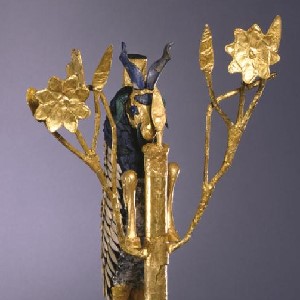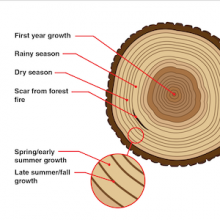Ancient (before 500 CE)

Neolithic Bone Flutes
The use of musical instruments, such as clay flutes and bone whistles, has been traced back to the earliest documented historical period in China (Shang dynasty, 1765-1121 BCE).
Primary Source: Educating Global Citizens
Such sources are indeed a superb addition to one’s class; unquestionably the materials on the Primary Source site can help enhance any class.
Digital Collections - Penn Museum
The digital collections of the Penn Museum are extensive and easily accessible through their online portal. Its written, visual, and audio sources invite many groups to explore world history by browsing its pieces.
Primer: Environmental History
Environmental history lends itself particularly well to a world history framework. Environmental processes do not limit themselves to national or cultural borders. The climate, for example, has always been a global system.
Horace, “Cleopatra Ode”
Given Horace’s position in Emperor Augustus’ court, it is not surprising that his description of Cleopatra is wholly negative. This text relies on “sourcing” and an understanding of the author’s bias and motivation for a proper reading.
Antony’s Meeting with Cleopatra from “Life of Antony”
Cleopatra’s claim to the Egyptian throne very much resided in her relationship and alliance with Caesar. Upon his death in the Senate, Cleopatra had lost her guarantor. Antony’s arrival in Egypt provided a second opportunity for her to secure her throne through a powerful alliance.
Cleopatra’s Meeting with Caesar
Cassius Dio’s history of the meeting between Cleopatra and Julius Caesar uses powerful word-choice to develop a characterization of the female Egyptian ruler. After Pompey’s assassination, Cleopatra immediately develops a scheme to ally with Caesar.
Advice to Bride and Groom (versus 14 and 18)
Plutarch’s Advice to a Bride and Groom reveals the author’s views that submissiveness is the proper behavior for a Roman patrician’s wife, which reflects the general gender norm of ancient Roman culture.
Short Teaching Module: Cleopatra, Gender, Beauty and Power in Egypt and Rome
Our most important early sources on Cleopatra are Roman histories, which are problematic in their reliability. Cleopatra held the status as the “enemy” for Romans, which created a bias among Roman authors. Moreover, Rome’s patriarchal culture influenced writers’ views of a powerful female ruler.
Aristotle’s Metaphysics
Metaphysics, written around 350 BCE, is among Greek philosohper Aristotle's most notable works. The text includes an excerpt from part seven of the ten part work.